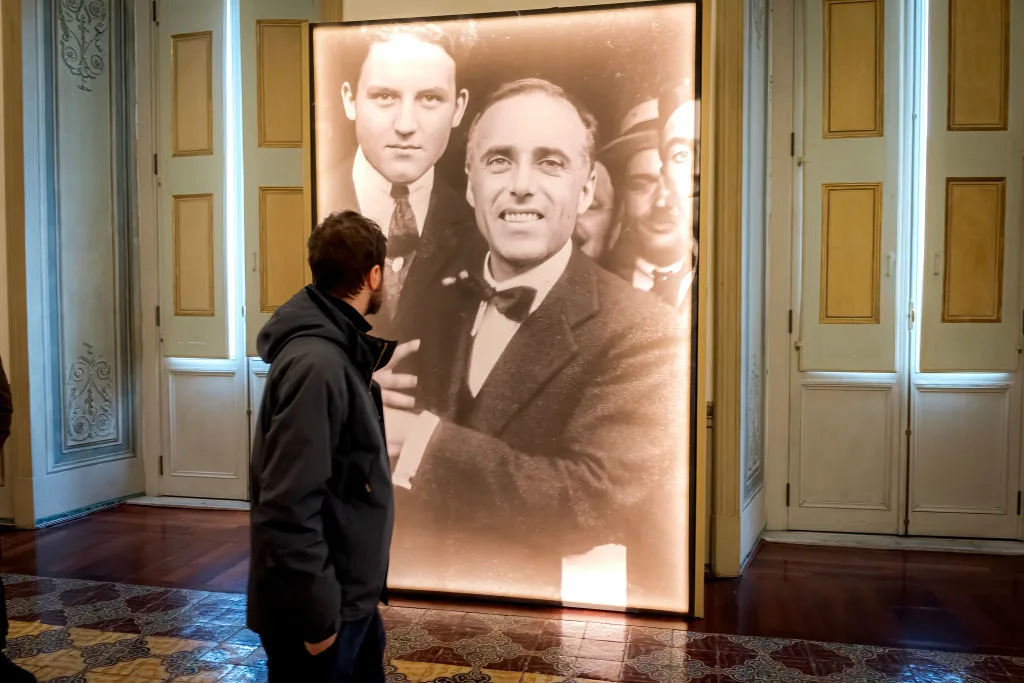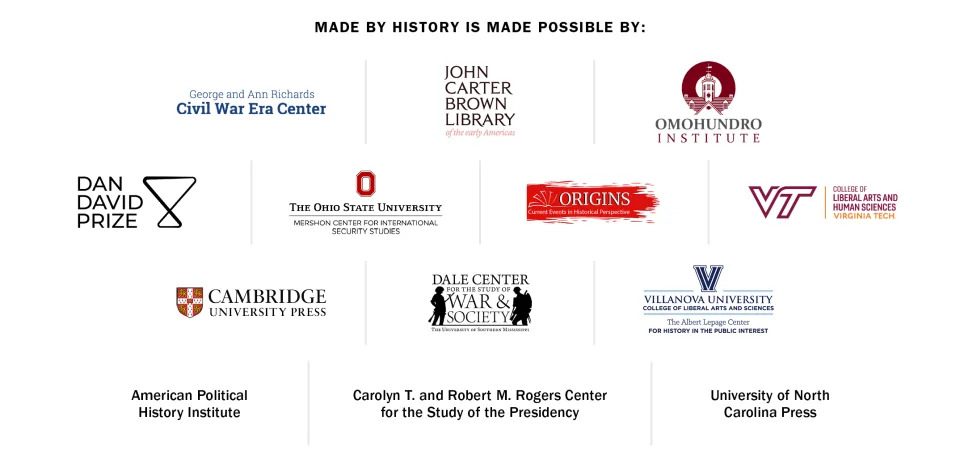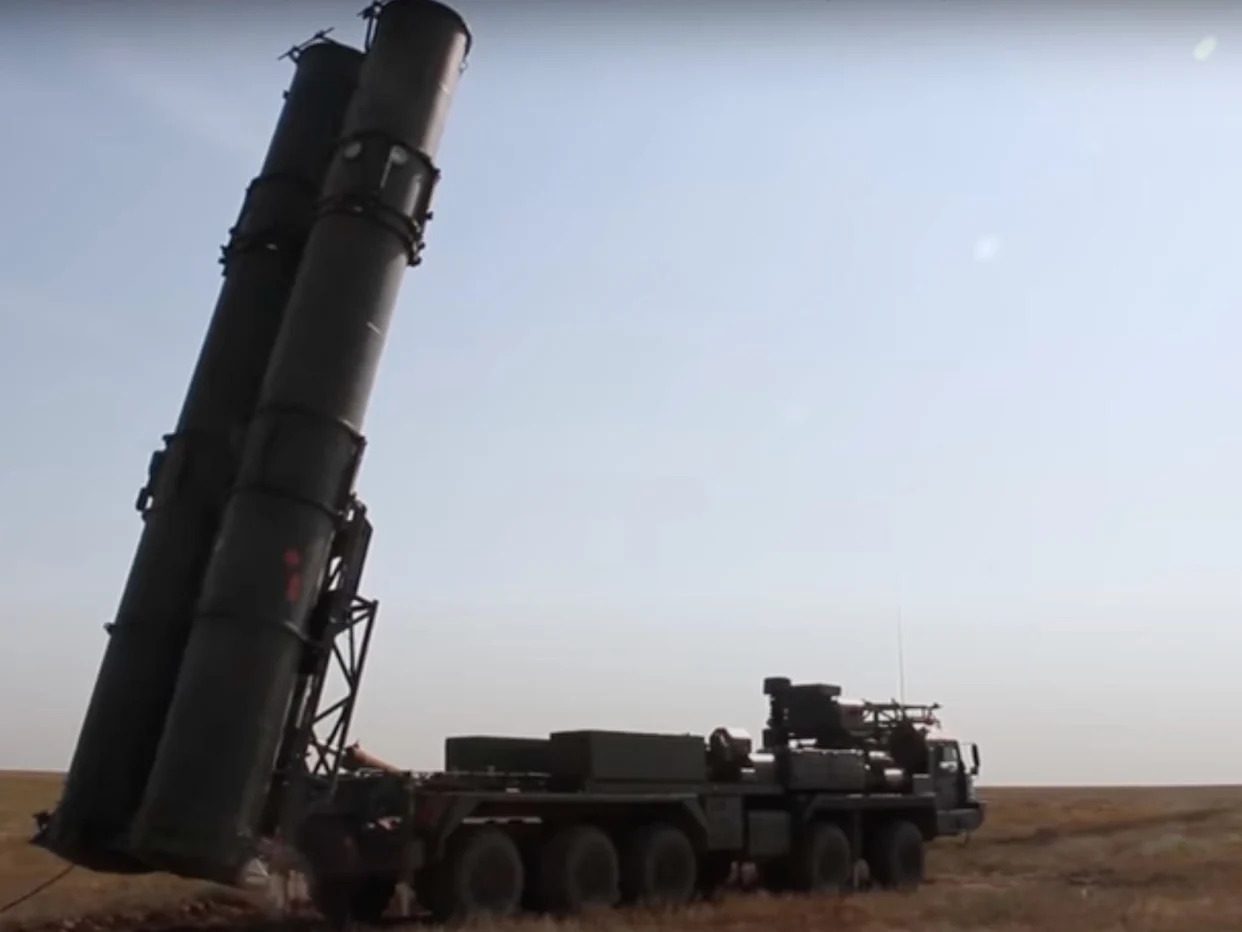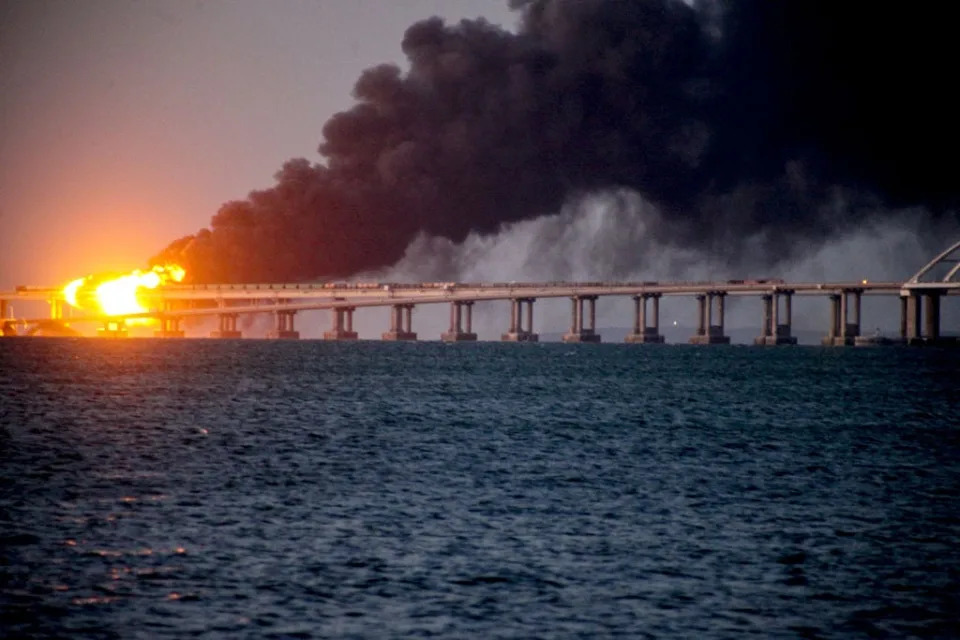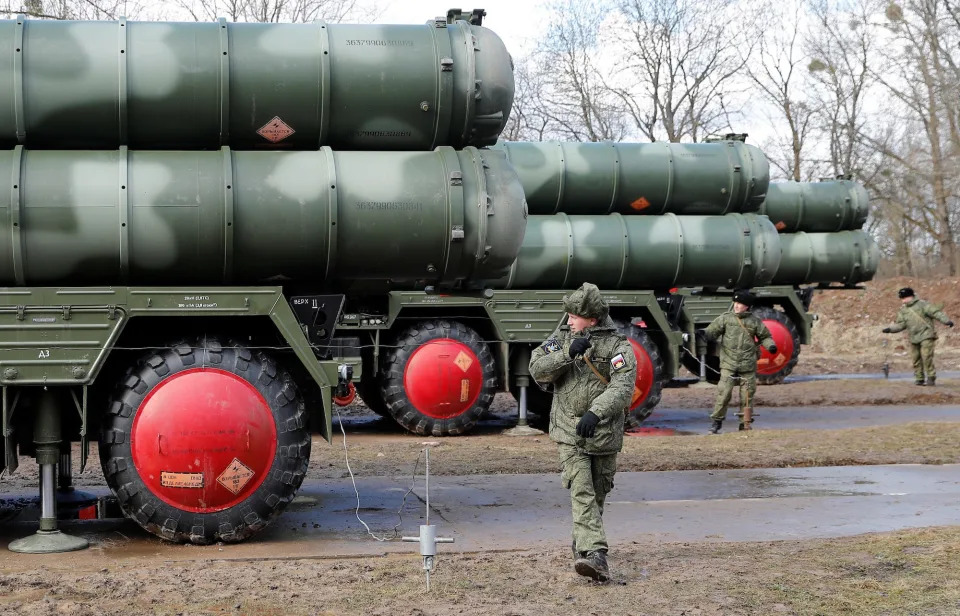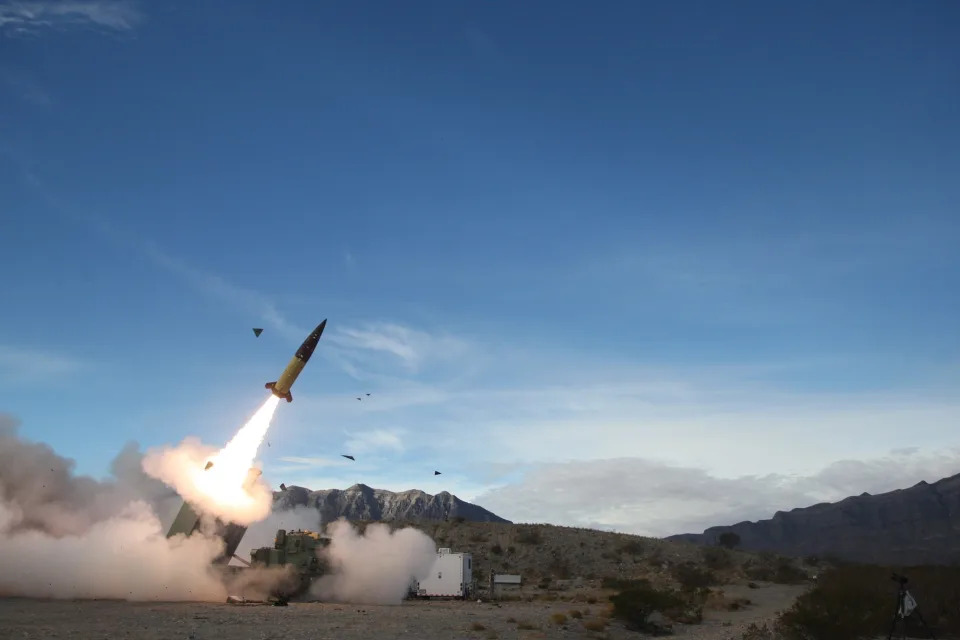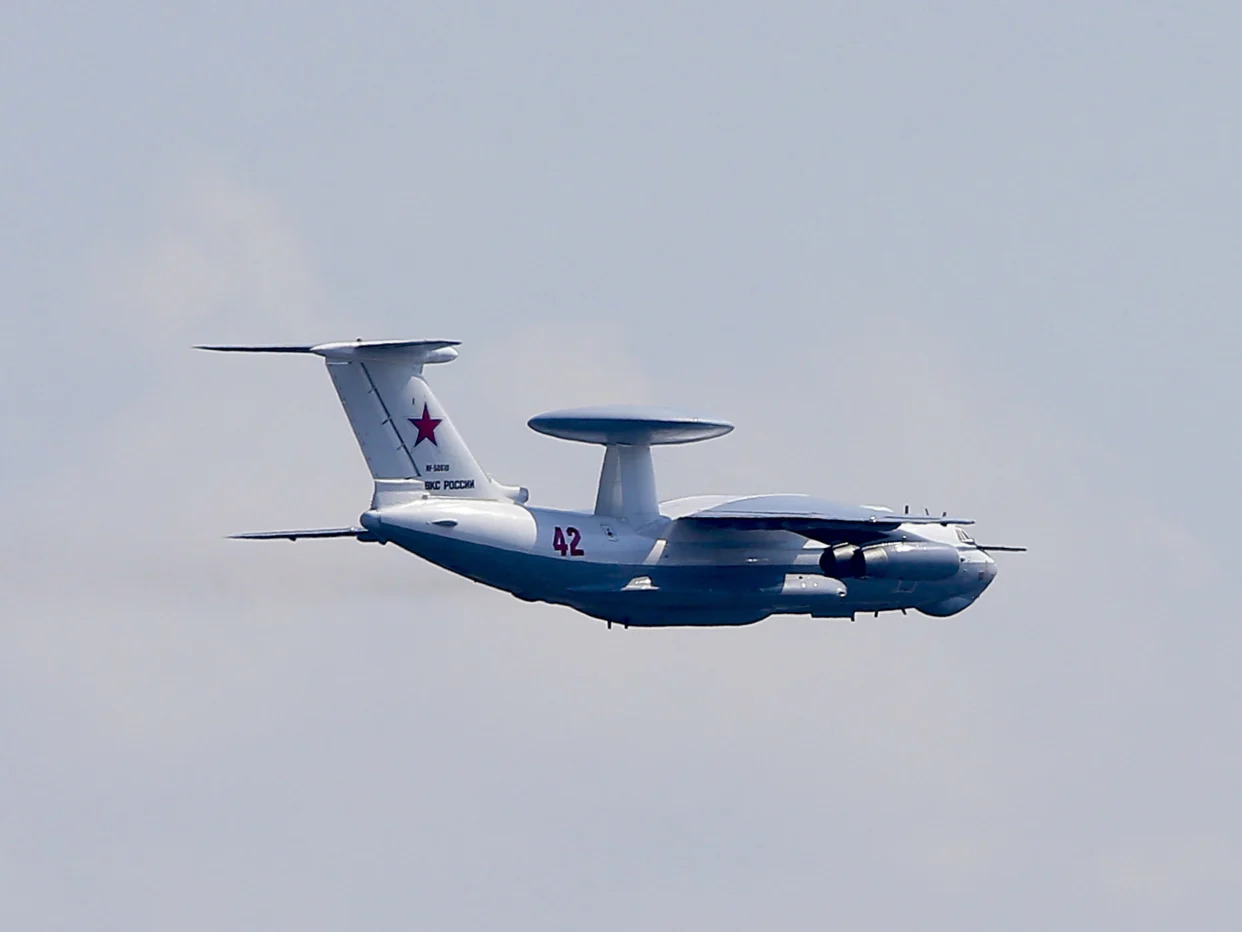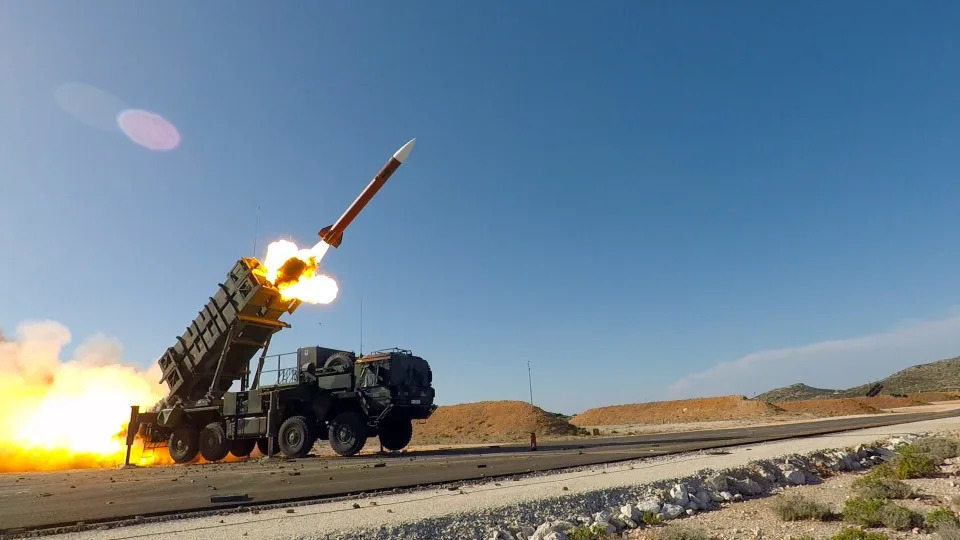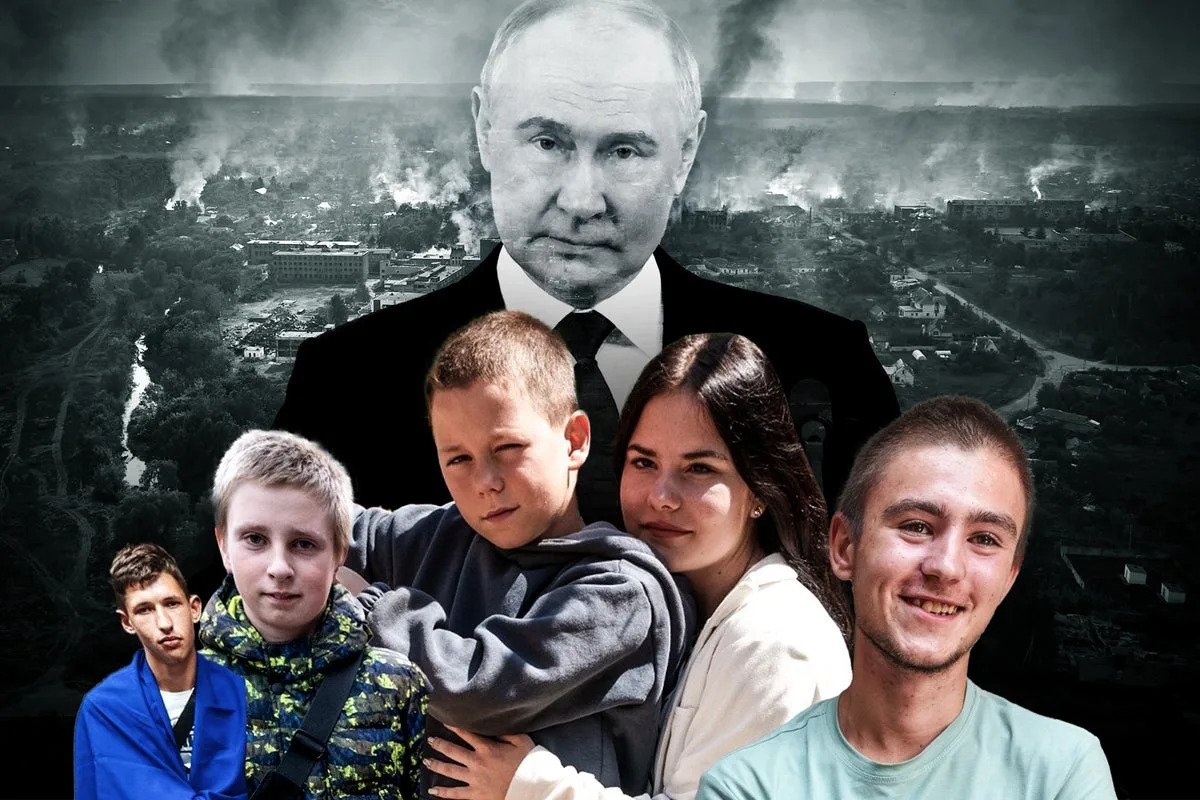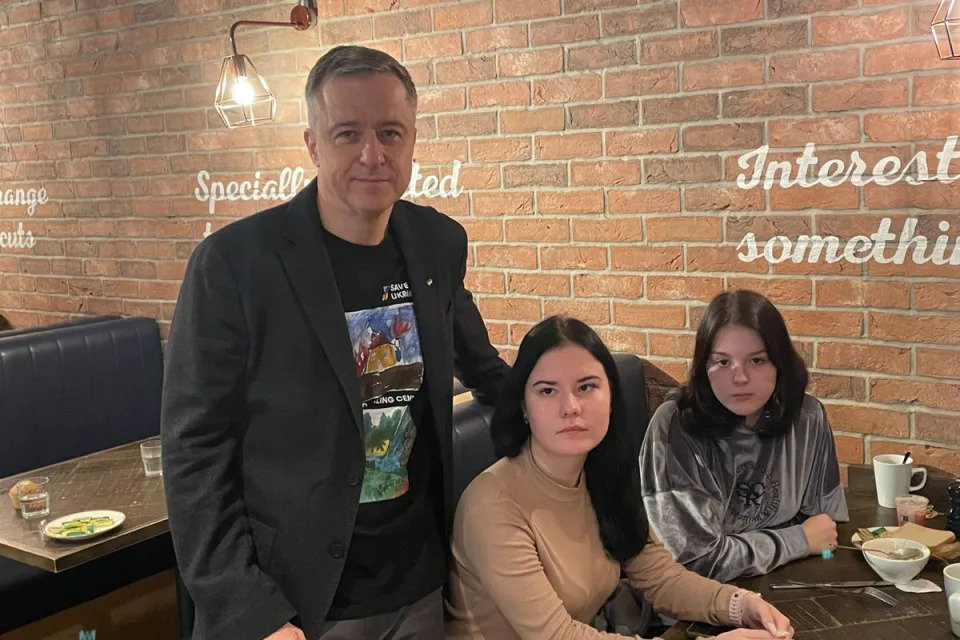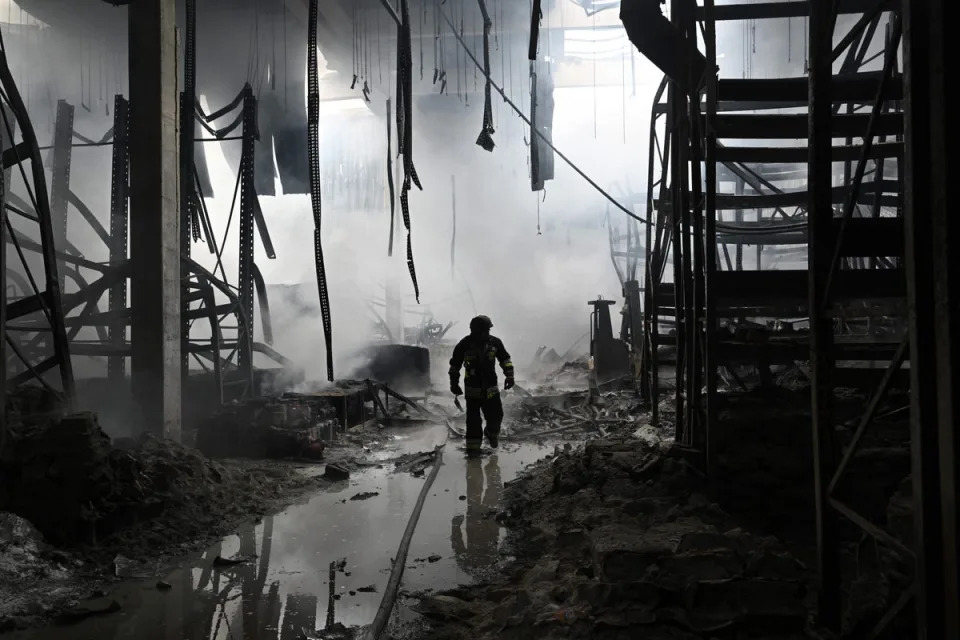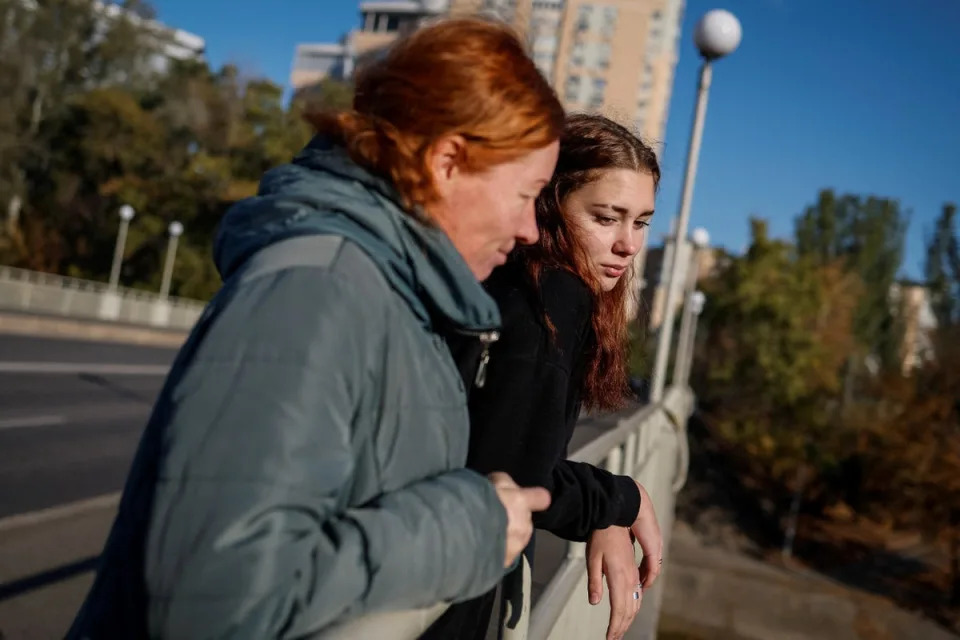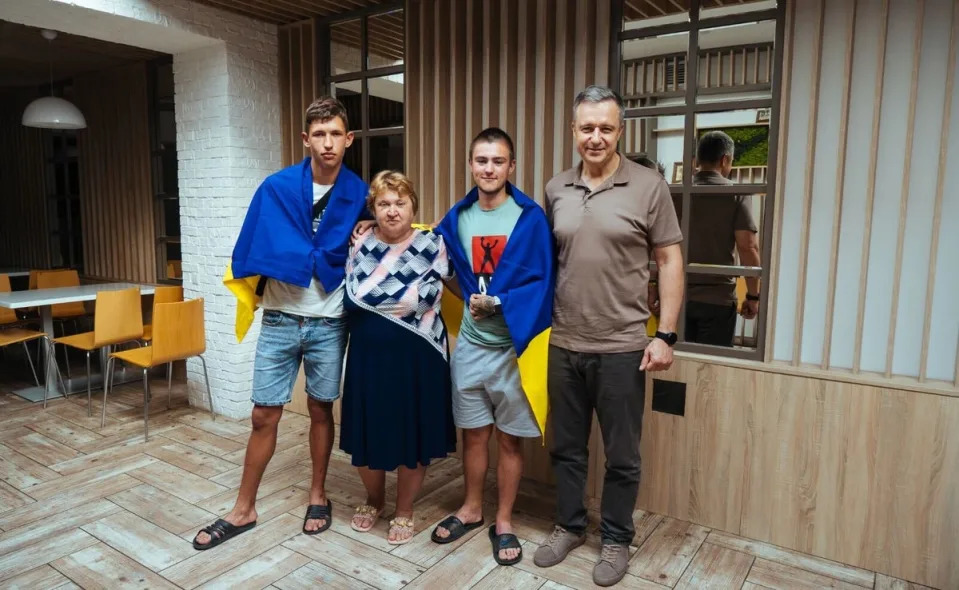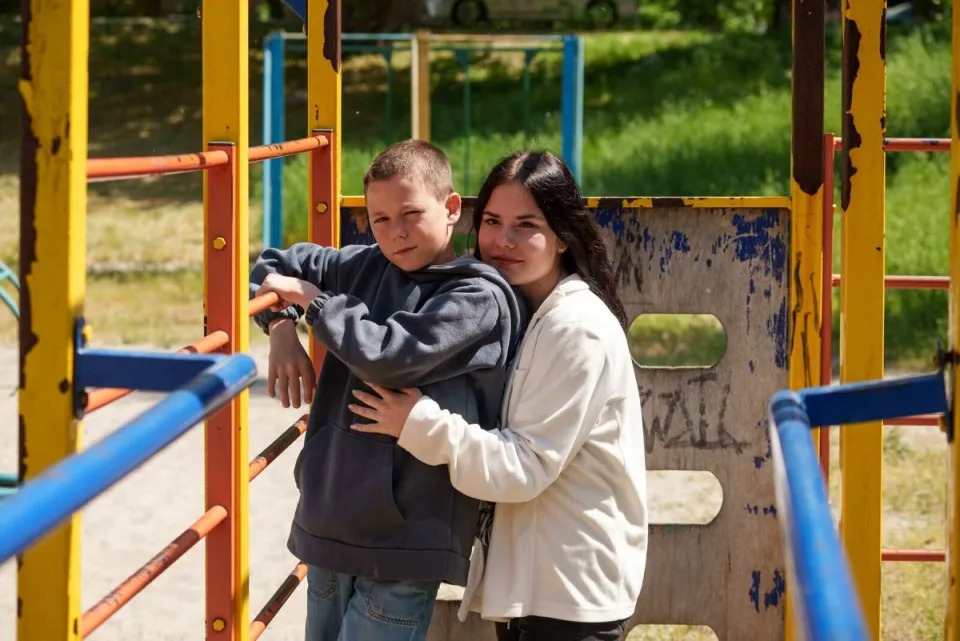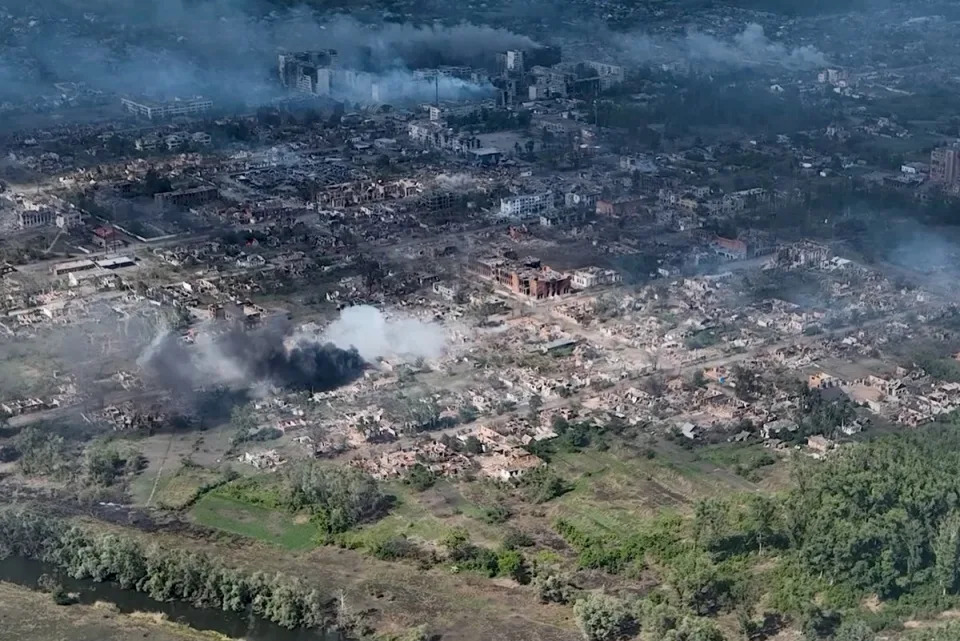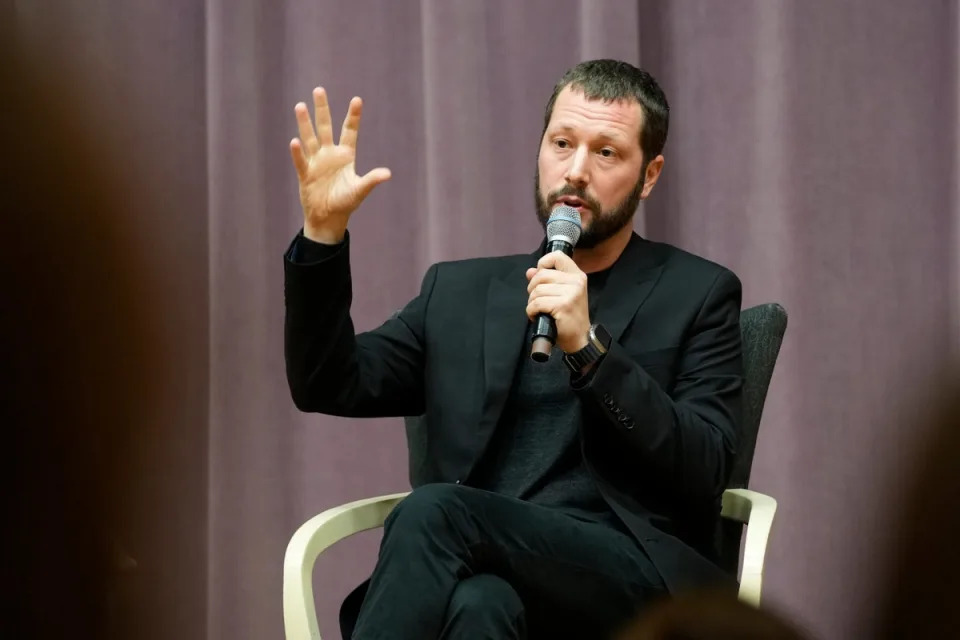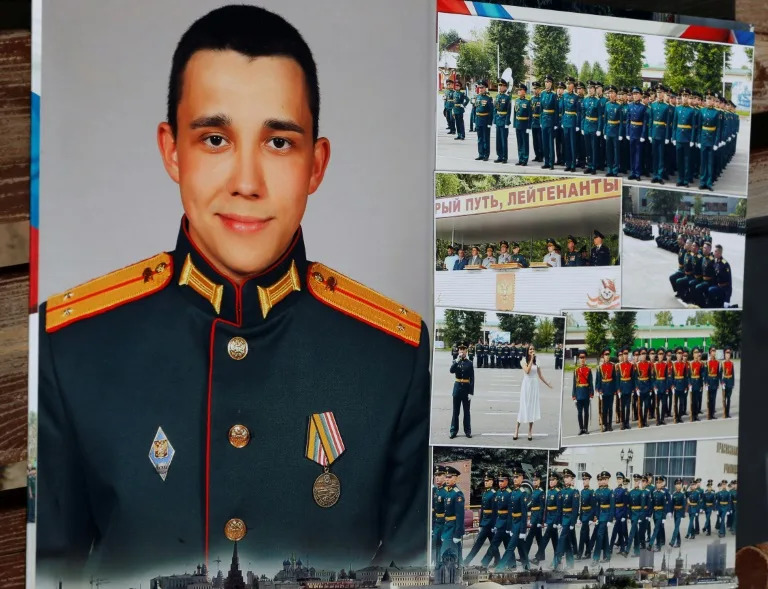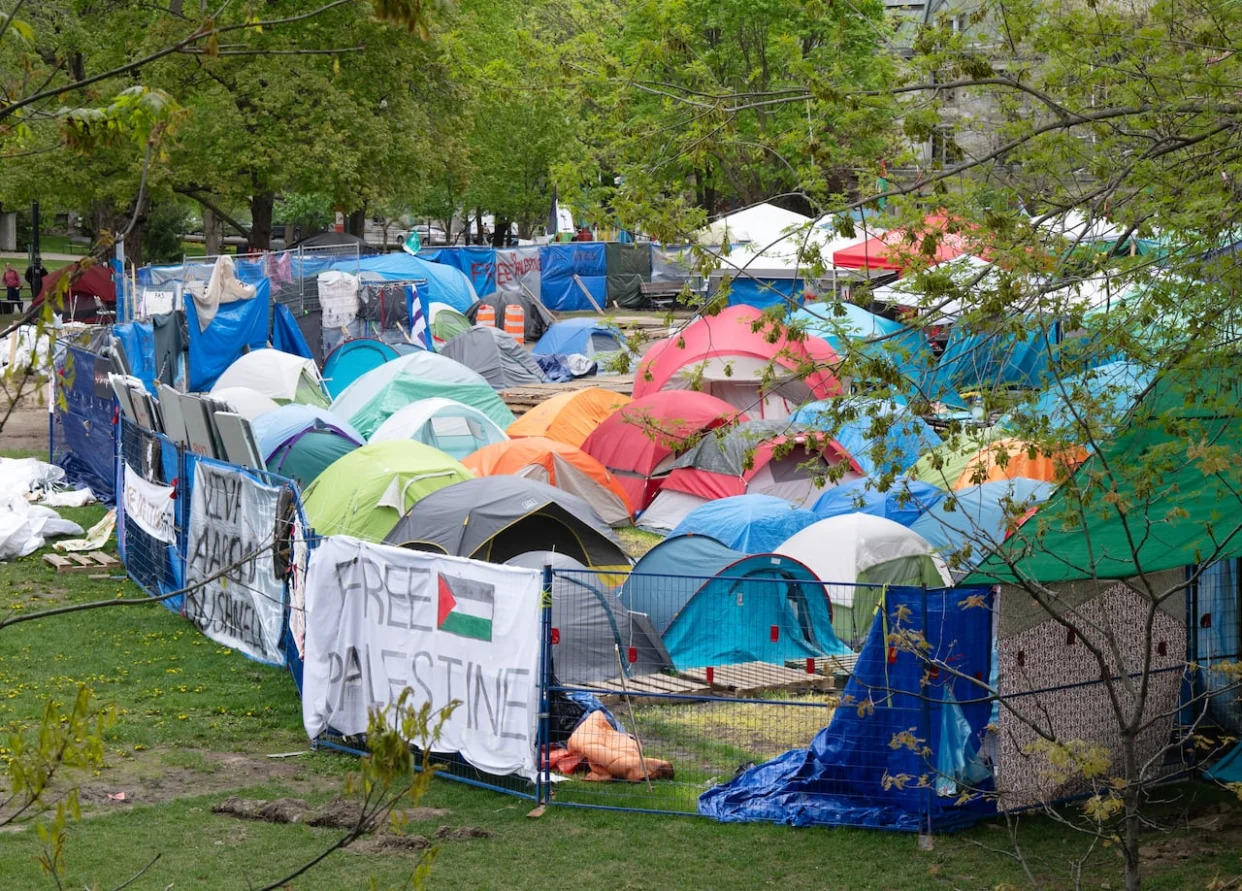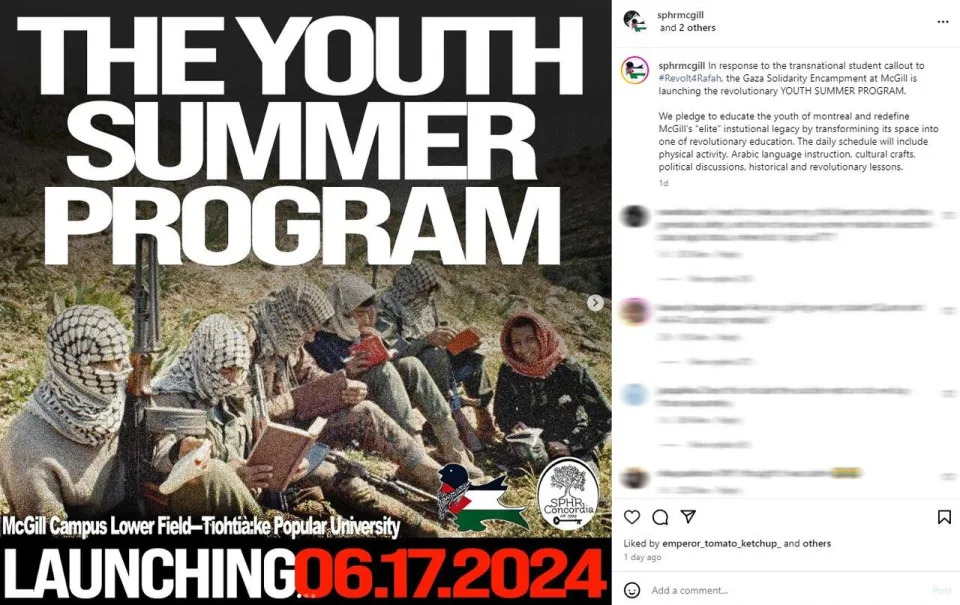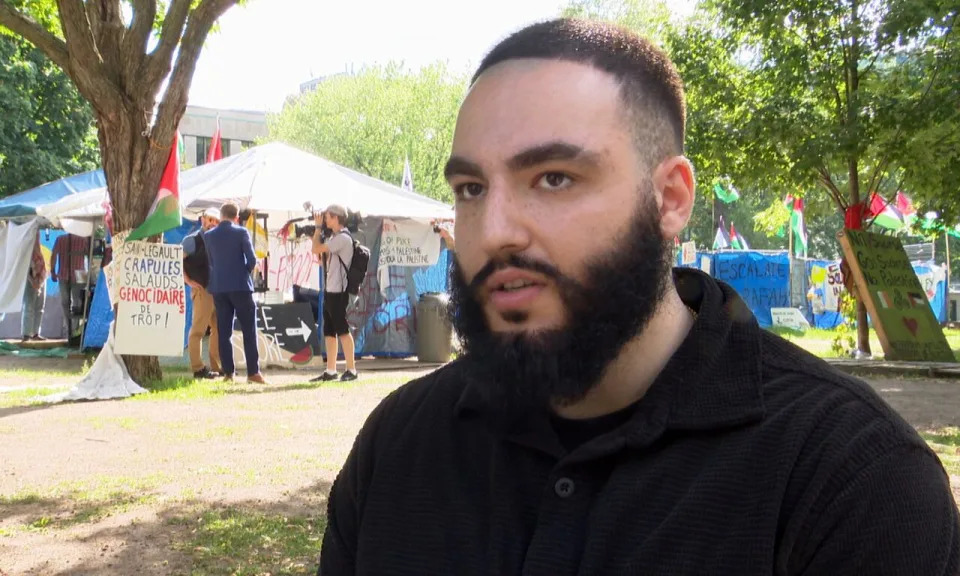South Africa's President Ramaphosa is reelected for second term after a dramatic late coalition deal
GERALD IMRAY and MOGOMOTSI MAGOME
Updated Sat, 15 June 2024
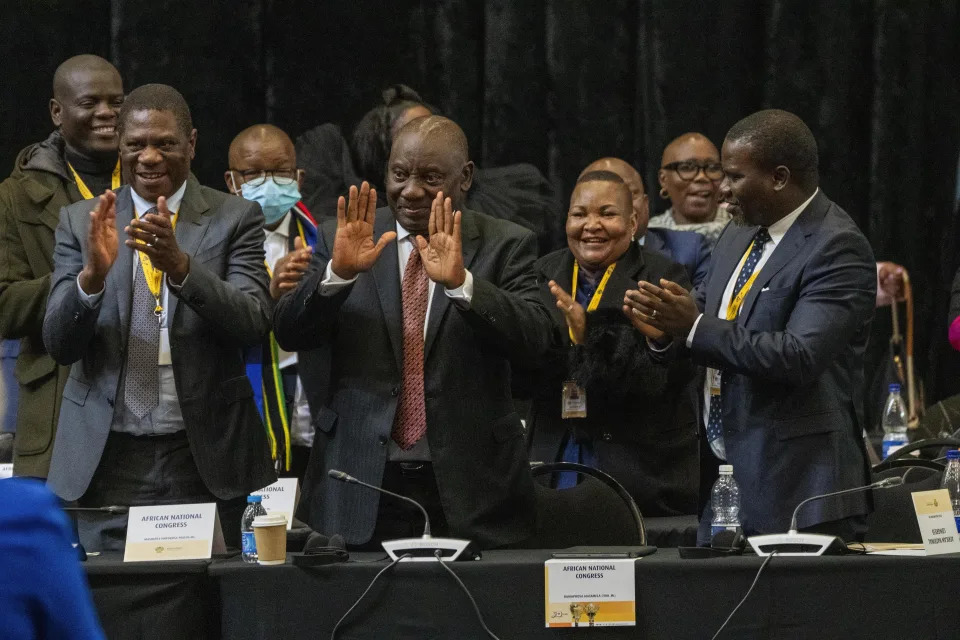
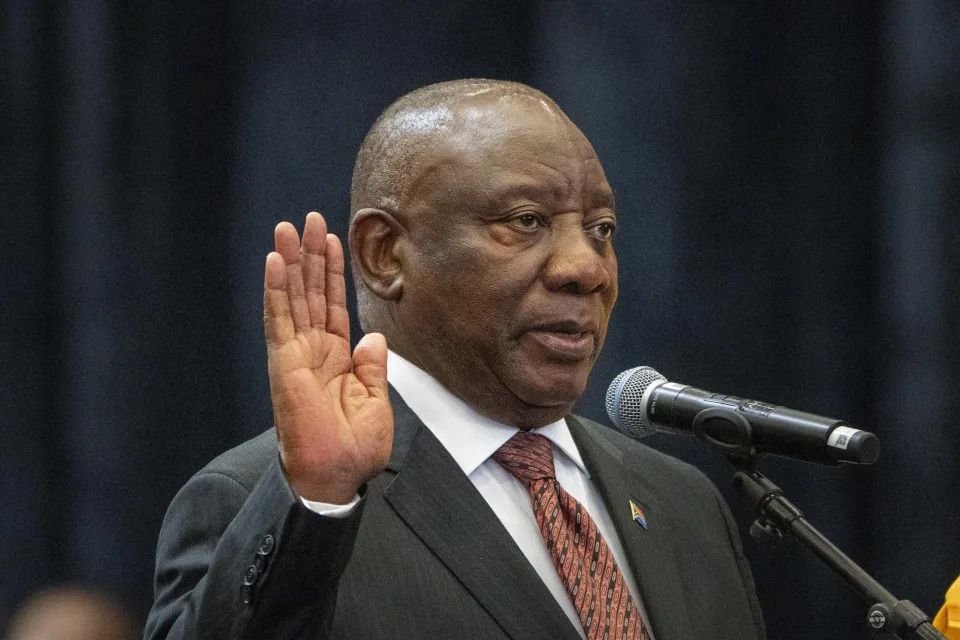
South African président Cyril Ramaphosa reacts after being reelected as leader of the country in Cape Town, South Africa, Friday, June 14, 2024. (AP Photo/Jerome Delay)
CAPE TOWN, South Africa (AP) — South African President Cyril Ramaphosa was reelected by lawmakers for a second term on Friday, after his party struck a dramatic late coalition deal with a former political foe just hours before the vote.
Ramaphosa, the leader of the African National Congress, won convincingly in Parliament against a surprise candidate who was also nominated — Julius Malema of the far-left Economic Freedom Fighters. Ramaphosa received 283 votes to Malema's 44 in the 400-member house.
The 71-year-old Ramaphosa secured his second term with the help of lawmakers from the country's second biggest party, the Democratic Alliance, and some smaller parties. They backed him in the vote and got him over the finish line following the ANC's loss of its long-held majority in a landmark election two weeks ago that reduced it to 159 seats in Parliament.
During a break in what turned out to be a marathon parliamentary session, the ANC signed the last-minute agreement with the DA, effectively ensuring Ramaphosa stays on as the leader of Africa’s most industrialized economy. The parties will now co-govern South Africa in its first national coalition where no party has a majority in Parliament.
The deal, referred to as a government of national unity, brings the ANC together with the DA, a white-led party that had for years been the main opposition and the fiercest critic of the ANC. At least two other smaller parties also joined the agreement.
Ramaphose called the deal — which sent South Africa into uncharted waters — a “new birth, a new era for our country” and said it was time for parties “to overcome their differences and to work together.”
“This is what we shall do and this is what I am committed to achieve as the president,” he said.
The ANC — the famed party of Nelson Mandela — had ruled South Africa with a comfortable majority since the end of the apartheid system of white minority rule in 1994.
But it lost its 30-year majority in the humbling national election on May 29, a turning point for the country. The vote was held against the backdrop of widespread discontent from South Africans over high levels of poverty, inequality and unemployment.
Analysts warn there might be complications ahead, though, given the starkly different ideologies of the ANC, a former liberation movement, and the centrist, business-friendly DA, which won 21% of the vote in the national election, the second largest share behind the ANC's 40%.
For one, the DA disagreed with the ANC government's move to accuse Israel of genocide in Gaza in a highly sensitive case at the United Nations’ top court.
The DA leader John Steenhuisen was the first to confirm the agreement.
“From today, the DA will co-govern the Republic of South Africa in a spirit of unity and collaboration,” he said as he stepped away from Friday's proceedings for a speech carried live on television in which he said a deal was signed and that the DA lawmakers would vote for Ramaphosa for president.
The Parliament session started at 10 a.m. in the unusual setting of a conference center near Cape Town’s waterfront, after the city’s historic National Assembly building was gutted in a fire in 2022. The house first went through the hourslong swearing-in of hundreds of new lawmakers and electing a speaker and a deputy speaker.
The vote for president started late at night, with the results announced well after 10 p.m. Ramaphosa finished his acceptance speech as the clock ticked past midnight and into Saturday.
Former President Jacob Zuma's MK Party boycotted the session but that did not affect the voting as only a third of the house is needed for a quorum.
ANC Secretary-General Fikile Mbalula said the party was open to talking with anyone else who wanted to join the unity government. There are 18 political parties represented in Parliament and he said the multi-party agreement would “prioritize the country across the political and ideological divide.”
Some parties, including Malema's EFF, refused to join.
The two other parties that joined the coalition deal were the Inkatha Freedom Party and the Patriotic Alliance, which has drawn attention partly because its leader, Gayton McKenzie, served a prison sentence for bank robbery.
McKenzie said he had been given a second chance in life and that South Africa also had one now, a chance to solve its deep socioeconomic problems.
The ANC had faced a deadline to strike a coalition agreement as Parliament had to vote for the president within 14 days after election results were declared on June 2. The ANC had been trying to strike a coalition agreement for two weeks and the final negotiations went on overnight Thursday to Friday, party officials said.
South Africa has not faced that level of political uncertainty since the ANC swept to power in the 1994 first all-race election that ended nearly a half-century of racial segregation. Since then, every South African leader has come from the ANC, starting with Mandela.
The new unity government also harked back to the way Mandela, South Africa’s first Black president, invited political opponents to be part of a unity government in 1994 in an act of reconciliation when the ANC had a majority. Ramaphosa had played a key role in those negotiations as a young politician.
This time, the ANC’s hand was forced.
“The ANC has been very magnanimous in that they have accepted defeat and have said, ‘let’s talk,'" PA leader McKenzie said.
___
Magome reported from Johannesburg.
___
AP Africa news: https://apnews.com/hub/africa
South Africa's Ramaphosa re-elected after coalition deal
Julie BOURDIN
Sat, 15 June 2024 at 3:40 am GMT-6·4-min read

A former trade unionist turned millionaire businessman, Ramaphosa will preside over a government combining radically different political views (WIKUS DE WET)
South African President Cyril Ramaphosa was re-elected for a second term after his humbled ANC cobbled together an unprecedented coalition government.
Lawmakers in Cape Town voted overwhelmingly on Friday to put Ramaphosa, 71, back in office for another five years after the May 29 general election produced no outright winner.
"I am humbled and honoured that you, as members of the National Assembly, have... decided to elect me to be the President of the Republic of South Africa," Ramaphosa said in his acceptance speech.
The election marked a historic turning point for South Africa, ending three decades of dominance by the African National Congress of the late Nelson Mandela.
The party that led the anti-apartheid struggle won only 40 percent of the vote and, for the first time, lost its absolute majority in parliament.
It has now struck a deal to form what it calls a government of national unity.
"This is a historic juncture in the life of our country, which requires that we must work and act together," Ramaphosa said.
ANC Secretary General Fikile Mbalula said on Friday the broad coalition brings together a majority of the 18 parties that won representation in the 400-seat National Assembly.
These include the centre-right Democratic Alliance (DA), the Zulu nationalist Inkatha Freedom Party and other smaller groups.
Ramaphosa was re-elected by fellow MPs with 283 votes in a secret ballot.
He saw off a last-minute challenge by Julius Malema, the firebrand leader of the radical leftist Economic Freedom Fighters (EFF), whose candidacy gained 44 votes.
Ramaphosa will be sworn in next week in Pretoria and then unveil his new cabinet.
South Africa's BRICS allies Russia and China on Saturday welcomed Ramaphosa's re-election with President Xi Jinping sending him a congratulatory note and Russian President Vladimir Putin saying: "We highly appreciate your personal contribution to the development of strategic partnership between our countries".
Ukrainian President Volodymyr Zelensky also congratulated Ramaphosa, hailing South Africa's "joint efforts to restore just peace in Ukraine."
"With your leadership and experience, South Africa is in good hands" the EU Commission's president Ursula von der Leyen wrote on X.
Neighbouring Zimbabwe's President Emmerson Mnangagwa said Ramaphosa's second mandate was "ample testimony of the great confidence and trust" South Africans had in him.
- 'Illegal' -
Lawmakers cast their ballot one by one in a lengthy ceremony held in a Cape Town convention centre.
EFF members took the oath wearing red overalls and in some cases rubber boots and plastic construction worker helmets.
They declined to support the incoming administration, having refused to countenance joining an alliance with right-wing or white-led parties.
"This is not a government of national unity, this is a grand coalition between the ANC and white monopoly capital. History will judge you harshly," EFF leader Malema said, after conceding defeat.
Graft-tainted former president Jacob Zuma's new party uMkhonto weSizwe (MK), which came third in the election, has disputed the results and its MPs boycotted Friday's sitting.
"The sitting of the national assembly today as far as we're concerned is illegal and unconstitutional," MK spokesman Nhlamulo Ndhlela told AFP.
A former trade unionist turned millionaire businessman, Ramaphosa will preside over a government combining radically different political views.
The ANC is a historically pan-Africanist, progressive party of the left that has overseen welfare and economic empowerment programmes for poor, black South Africans.
The largest coalition party, the DA, pushes a liberal, free-market agenda. Smaller parties that are understood to have agreed to join the government range from the left to the far right.
"At the heart of this government of national unity statement is a shared respect and defence of our constitution and the rule of law," DA leader John Steenhuisen said.
- No easy road -
The agreement extended to regional coalitions in Johannesburg's Gauteng province and in KwaZulu-Natal, the Zulu heartland.
Zuma's MK won the most votes in the latter but was left empty-handed as coalition members managed to get a wafer-thin majority of 41 out of 80 provincial councillors.
DA's Steenhuisen said the coalition agreement included a consensus mechanism to deal "with the disagreements that will inevitably arise".
Ramaphosa first came to power in 2018 after Zuma was forced out under the cloud of corruption allegations.
Under his watch South Africa suffered from record power cuts, the economy languished and crime remained rife. Unemployment is at almost 33 percent.
He will now have the arduous task to bridge conflicting views within government to turn around South Africa's economic fortunes.
str-dc-ub/zam/ach
Ramaphosa is re-elected for second term as South African president, heading broad coalition
NEWS WIRES
Sat, 15 June 2024
South African President Cyril Ramaphosa was re-elected for a second term on Friday, after his humbled ANC cobbled together an unprecedented coalition government.
Lawmakers in Cape Town voted overwhelmingly to put Ramaphosa, 71, back in office for another five years after the May 29 general election that produced no outright winner.
“I am humbled and honoured that you, as members of the National Assembly, have... decided to elect me to be the President of the Republic of South Africa,” Ramaphosa said in his acceptance speech.
Last month’s election marked a historic turning point for South Africa, ending three decades of dominance by the African National Congress of the late Nelson Mandela.
The party that led the anti-apartheid struggle won only 40 percent of the vote and, for the first time, lost its absolute majority in parliament.
It has now struck a deal to form what it calls a government of national unity.
“This is a historic juncture in the life of our country, which requires that we must work and act together,” Ramaphosa said.
ANC Secretary General Fikile Mbalula said on Friday the broad coalition brings together a majority of the 18 parties that won representation in the 400-seat National Assembly.
Cyril Ramaphosa: from anti-apartheid activist to leader of South Africa's coalition government
Melissa Chemam
Fri, 14 June 2024

Cyril Ramaphosa, the former trade unionist and key participant in the fight against apartheid, is set to be given a second mandate as South Africa's president, albeit without an absolute majority in parliament. He remains the ANC leader too.
Cyril Ramaphosa, 71, emerged weakened from the elections that took place on 29 May.
Some political analysts have even questioned his ability to serve a full second five-year term.
But after weeks of negotiation he has been named leader of South Africa's first coalition government.
Once described by Mandela as one of the most gifted leaders of his generation, Ramaphosa played a key role in the negotiations that brought an end to apartheid in the early 1990s.
Emergence of an activist
Born on 17 November 1952 in Johannesburg, Ramaphosa comes from a family that was moved from Western Native Township to Soweto in 1962.
He attended Tshilidzi Primary School, and completed high school at Mphaphuli High School in Sibasa, Venda in 1971.
He registered to study law at the University of the North in 1972, and became involved in student politics, joining the South African Student Organisation (SASO) and the Black People’s Convention (BPC).
In 1974, he was sentenced to 11 months detention in solitary confinement, under Section 6 of the Terrorism Act for organising pro-Frelimo rallies. The Frelimo Liberation Front of Mozambique is a left-wing party that has been in powere in Mozambique since 1977.
He was detained for the second time and held for six months in 1976 following the Soweto student uprising.
He was sworn in as President of the Republic of South Africa on 15 February 2018 following the resignation of Zuma.
S. Africa's DA reaches agreement on unity govt - leader
Reuters Videos
Updated Fri, 14 Ju

::June 14, 2024
::Cape Town, South Africa
:: John Steenhuisen, Democratic Alliance leader
“It is my privilege to report to you, that after two weeks of thorough negotiations, that only concluded after today’s sitting of parliament had already started, the DA has reached agreement on the statement of intent for the formation of a government of national unity.”
“The government of national unity’s presidential candidate will come from the largest party inside the grouping, being President Cyril Ramaphosa. Following his election today, President Ramaphosa will then exercise his prerogative to appoint his new cabinet, from among the members of the government of national unity, in consultation with the leaders of the constituent parties”.
Once unthinkable, the deal between two sharply antagonistic parties is the most momentous political shift in South Africa since Nelson Mandela led the ANC to victory in the 1994 elections that marked the end of apartheid.
The ANC lost its majority for the first time in an election on May 29 and has spent two weeks locked in intensive behind-the-scenes talks with other parties, which came down to the wire on Friday morning as the new parliament was convening.
Two smaller parties, the socially conservative Inkatha Freedom Party and the right-wing Patriotic Alliance, will also take part in the unity government.
